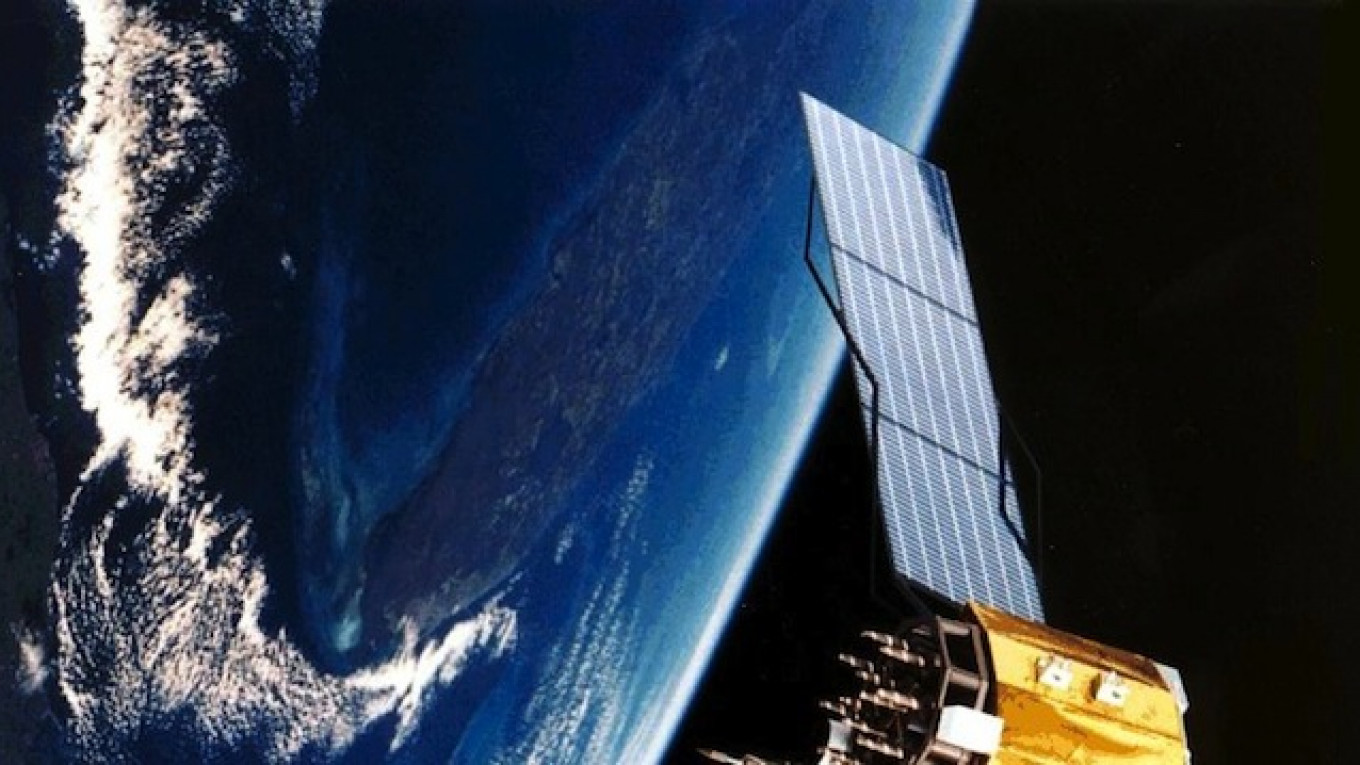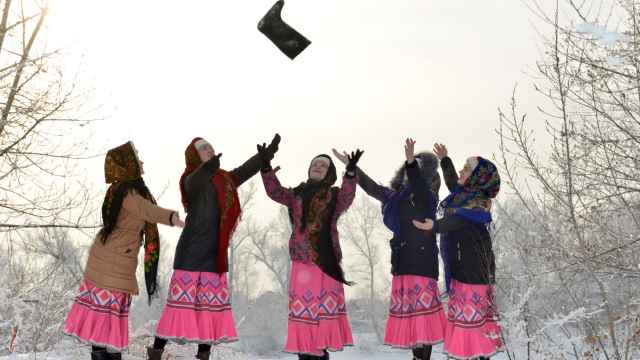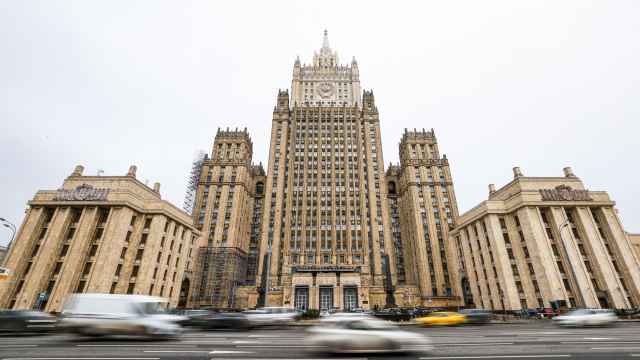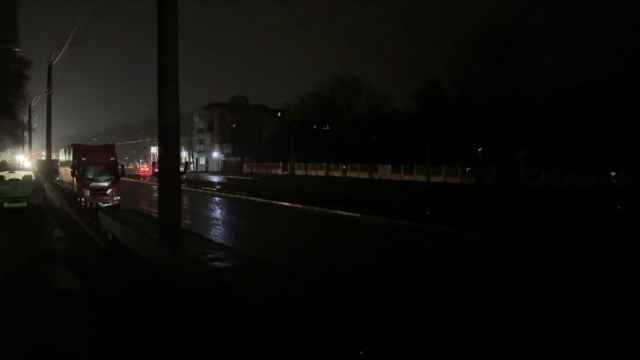Two defunct Soviet-era satellites will fall to Earth on Monday evening, according to U.S. space tracking data, Interfax reported.
Neither of the satellites — an early warning missile detection satellite and a weather satellite — pose an immediate danger to residential areas. Both of them are expected to burn up in the atmosphere over bodies of water, though some small fragments may survive reentry and reach the ground.
Earth's orbit is littered with dead satellites, fragments of used rocket stages and miscellaneous "space debris" after almost 60 years of space exploration. Over time, the orbital speed of debris slows and the objects begin to fall back into the atmosphere. Most of these objects are small enough that they disintegrate in the enormous heat generated by the friction of falling into the atmosphere, but sometimes pieces survive and hit the Earth.
Tracking data indicates that one of the satellites, an Oko type early-warning satellite designed to detect intercontinental ballistic missile launches, will enter the atmosphere above the Bering Strait.
Crab fishermen need not worry, as the Oko satellite is expected to burn up after crossing the 100 kilometer boundary that roughly marks the end of space and the beginning of the atmosphere.
The Oko satellite, otherwise known as Kosmos-903 — the name "Kosmos" is a uniform designation intended to conceal the nature of Soviet and Russian satellites from foreign eyes — was launched in 1977 from the Plesetsk cosmodrome aboard a Molniya rocket.
Kosmos-903 has long been defunct, but the Okos that Russia still maintains are falling into disrepair. In late June, Russia's space command lost contact with one of its three remaining active Oko early warning satellites, Kosmos-2479, significantly limiting Moscow's ability to detect missile launches. Russia's early warning network has suffered from neglect following the collapse of the Soviet Union, but defense and space officials have said that a new system is in the works, though details on the program are scarce.
Kosmos-1151, the other satellite expected to fall to Earth on Monday, is an old test model of the Okean family of ocean observation satellites. It will enter the atmosphere somewhere over the Kara Sea, located off the coast of Northern Siberia.
See also:
Minister Wants Russia to Build All Satellites on Russian Soil
Contact the author at [email protected]
A Message from The Moscow Times:
Dear readers,
We are facing unprecedented challenges. Russia's Prosecutor General's Office has designated The Moscow Times as an "undesirable" organization, criminalizing our work and putting our staff at risk of prosecution. This follows our earlier unjust labeling as a "foreign agent."
These actions are direct attempts to silence independent journalism in Russia. The authorities claim our work "discredits the decisions of the Russian leadership." We see things differently: we strive to provide accurate, unbiased reporting on Russia.
We, the journalists of The Moscow Times, refuse to be silenced. But to continue our work, we need your help.
Your support, no matter how small, makes a world of difference. If you can, please support us monthly starting from just $2. It's quick to set up, and every contribution makes a significant impact.
By supporting The Moscow Times, you're defending open, independent journalism in the face of repression. Thank you for standing with us.
Remind me later.






